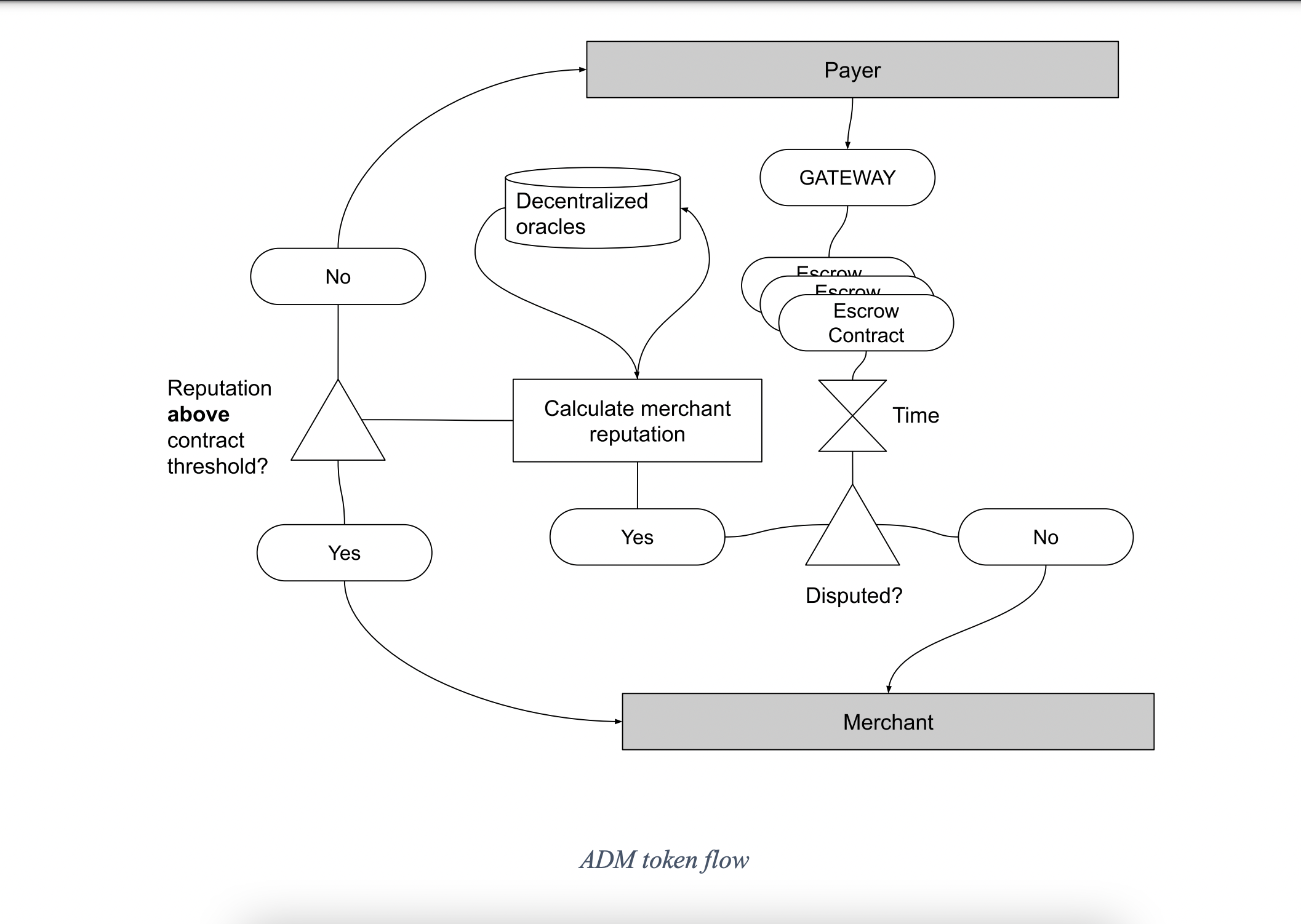Automatic Dispute Management (ADM)
Escrowing is particularly important for off-chain components like e-commerce payments.

- A payer account approves a token transfer to the Merchant via a trusted Merchant Protocol Gateway (smart contract).
- The Merchant Protocol Gateway routes the transaction to a smart contract based on the delivery time of the e-commerce order (another smart contract) that transfers those tokens to itself, holding them in escrow. The escrow time and reputation factors will vary on the final delivery time.
- The merchant account cannot withdraw escrowed tokens without a high reputation level (calculation based on successful “non-disputed” escrows over variable time, total processed amount on address) or after the escrow time has passed without any dispute-signals from the payer account. The tokens are transferred to the merchant (minus a transaction fee that goes to the fee pool) after a settlement signal on the blockchain from the merchant or automatically after the escrow time has passed in the blockchain if there are no dispute claims.
Should the merchant have a high reputation level, the tokens will be transferred by the Merchant Protocol Gateway without ever landing in any escrow contract. - Should there be a dispute signal from the payer and the merchant has a bad reputation level, the escrow contract will initiate a “chargeback” event resulting in the funds being routed back to the sender.
Updated about 1 year ago